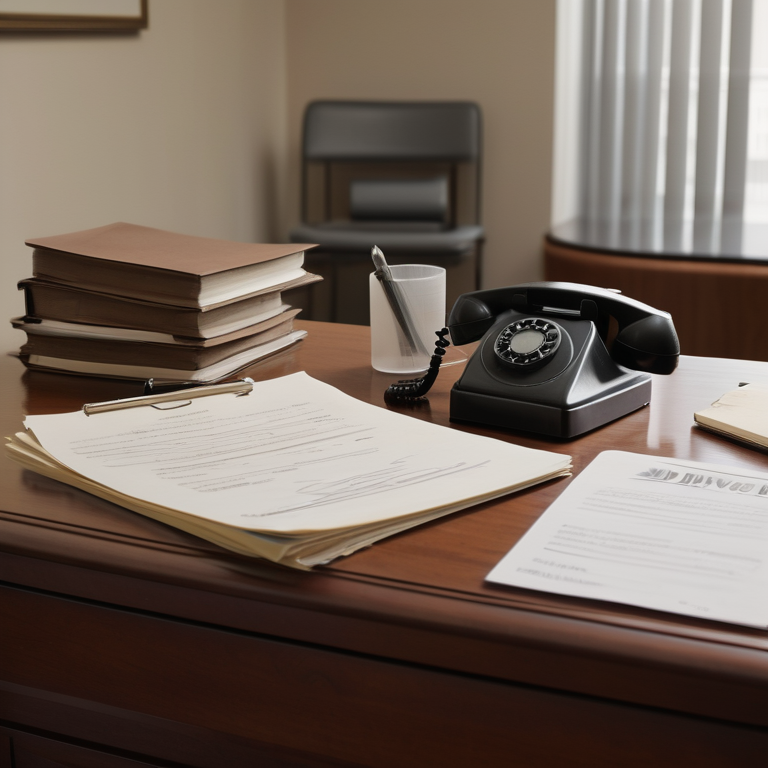If you are considering a DIY divorce in Ireland, having the right contact number is essential. By reaching out to the appropriate authority or legal service, you can navigate the process effectively and efficiently. Stay tuned as we explore the key contact numbers and resources you need for your DIY divorce in Ireland. As you embark on your journey towards a DIY divorce in Ireland, having the correct contact number at your fingertips is crucial. Whether you require guidance on legal procedures or support services, the right contact can make all the difference. Let’s delve into the essential contact numbers and resources that will aid you in your DIY divorce process in Ireland.
Key Highlights
- DIY divorce in Ireland is a cost-effective option for those seeking a quick and easy divorce without the expense of solicitors.
- DIY Divorce is a reputable company that offers a personal and professional service to guide individuals through the divorce process.
- The DIY Divorce Ireland contact number is an essential resource for anyone considering a DIY divorce.
- By using the DIY Divorce Ireland contact number, individuals can receive assistance with their paperwork and navigate the court system more effectively.
Is it advisable to pursue a DIY divorce in Ireland?
Pursuing a DIY divorce in Ireland can be advisable if both parties agree on all terms and have no complex legal matters. However, seeking legal advice is recommended to ensure all aspects are considered and the process is completed correctly within the Irish legal framework.
- DIY Divorce has been recommended by court offices and solicitors as a more affordable option for divorce in Ireland.
- With the help of DIY Divorce, individuals can save on legal costs and simplify the divorce procedure.
Introduction
Getting a divorce can be a challenging and emotional process. Apart from the emotional strain, there are also legal and financial aspects to consider. However, for those who want to avoid the high costs associated with hiring a solicitor, a DIY divorce in Ireland may be the right solution. DIY divorce, which stands for Do-It-Yourself divorce, allows individuals to navigate the divorce process on their own, without the need for legal representation.
One company that is helping individuals through the DIY divorce process in Ireland is DIY Divorce. With their expertise and guidance, individuals can complete their divorce paperwork and navigate the court system with ease. DIY Divorce has gained a reputation for their professional and affordable services, and they have been recommended by court offices and solicitors across the country.
If you are considering a DIY divorce in Ireland, the DIY Divorce Ireland contact number is an essential resource. By contacting DIY Divorce , individuals can receive all the necessary information and assistance they need to successfully complete their divorce proceedings. Whether it’s answering questions, providing guidance, or helping with paperwork, DIY Divorce is there to support individuals every step of the way.www.diydivorcesolutions.ie
Understanding DIY Divorce in Ireland
Before delving into the details of the DIY divorce process in Ireland, it is important to have a clear understanding of what DIY divorce actually means. DIY divorce refers to the process of obtaining a divorce without the assistance of a solicitor. It allows individuals to navigate the divorce process on their own, from filing the necessary paperwork to attending court hearings. However, it is crucial to have a basic understanding of family law and the divorce process in Ireland in order to successfully complete a DIY divorce.
What is DIY Divorce?
DIY divorce is a cost-effective option for those who want to handle their own divorce proceedings without the need for a solicitor. It involves completing and filing the necessary paperwork, attending court hearings, and navigating the legal requirements on your own. While it may seem daunting at first, DIY divorce can save individuals a significant amount of money in legal fees.
However, it is important to note that DIY divorce is not suitable for everyone. It is best suited for couples who have simple financial arrangements and can communicate effectively with each other. Additionally, a basic understanding of family law and the divorce process in Ireland is essential to ensure a successful DIY divorce. www.diydivorcesolutions.ie
The Benefits of Opting for a DIY Divorce
Opting for a DIY divorce in Ireland comes with several benefits, including:
- Cost Savings: One of the main advantages of a DIY divorce is the significant cost savings compared to hiring a solicitor. DIY divorce eliminates the need for costly legal representation and allows individuals to handle the process themselves.
- Control and Flexibility: With a DIY divorce, individuals have more control over the divorce proceedings and can navigate the process at their own pace. It also allows for flexibility in scheduling court hearings and meetings.
- Reduced Emotional Strain: Going through a divorce can be a traumatic and emotional time. By opting for a DIY divorce, individuals can minimise their interactions with solicitors and court personnel, reducing the emotional strain.
- Simplified Procedure: DIY divorce simplifies the divorce procedure by providing step-by-step guidance on completing the necessary paperwork and attending court hearings.
- Privacy: DIY divorce allows individuals to keep their divorce proceedings private, as there is no need for extensive communication with solicitors and court personnel. www.diydivorcesolutions.ie
Key Takeaways on DIY Divorce Ireland Contact Number
The DIY Divorce Ireland contact number provided by DIY Divorce is an essential resource for anyone considering a DIY divorce. By contacting DIY Divorce, individuals can receive guidance, support, and assistance with their divorce proceedings. The DIY Divorce Ireland contact number is a valuable tool that can help individuals save on legal costs, simplify the divorce procedure, and navigate the court system more effectively. Whether it’s answering questions, providing advice, or offering assistance with paperwork, DIY Divorce is committed to helping individuals achieve a successful DIY divorce.
Importance of the DIY Divorce Ireland Contact Number
The DIY Divorce Ireland contact number is of utmost importance for anyone considering a DIY divorce. By contacting DIY Divorce, individuals can access essential guidance and support throughout the divorce process. The experienced team at DIY Divorce can answer any questions or concerns individuals may have about their divorce proceedings.
Moreover, the DIY Divorce Ireland contact number provides individuals with a direct line of communication to DIY Divorce. This allows for quick and efficient communication, whether it’s via phone or email. By utilising the DIY Divorce Ireland contact number, individuals can ensure they have all the necessary information and resources to navigate the DIY divorce process successfully.
How to Effectively Use the Contact Number
To effectively use the DIY Divorce Ireland contact number, individuals should first gather all relevant information and questions they have regarding their divorce application process. This will help ensure a more productive conversation with the team at DIY Divorce.
When contacting DIY Divorce, individuals should be prepared to provide their contact information, including their name and email address. This will allow DIY Divorce to follow up with any additional information or documents that may be required.
It is also important to be patient when using the DIY Divorce Ireland contact number, as the team at DIY Divorce may be assisting other clients. However, rest assured that DIY Divorce is committed to providing timely and accurate assistance to all individuals seeking a DIY divorce in Ireland. www.diydivorcesolutions.ie
Step-by-Step Guide to Initiating Your DIY Divorce
Initiating a DIY divorce in Ireland requires a step-by-step approach to ensure a smooth and successful process. Here is a guide to help you navigate the initial stages of your DIY divorce:
- Gather Documents: Collect all relevant documents, including your original marriage certificate, proof of residency, and financial information.
- Complete the Civil Bill: Prepare and file a Family Law Civil Bill, which acts as your divorce application. This document outlines the details of your marriage, the breakdown of the relationship, and any assets or children involved.
- File Affidavits: Along with the Civil Bill, you will need to file supporting affidavits, such as an Affidavit of Means (finances) and an Affidavit of Welfare (child(ren)). These affidavits provide the court with crucial information regarding your financial situation and the welfare of any children involved.
- Serve Documents: Once the documents are filed, they need to be served on your spouse. You will need to file an Affidavit of Service to confirm that the documents have been properly served. www.diydivorcesolutions.ie
Preparing Your Documents
When preparing your documents for a DIY divorce in Ireland, there are several key documents you will need to gather and complete. These include:
- Original Marriage Certificate: You will need to obtain an original copy of your marriage certificate, as this will be required as proof of your marriage.
- Civil Bill: The Civil Bill is the document that outlines the details of your divorce application. It includes information about your marriage, the breakdown of the relationship, and any assets or children involved.
- Affidavit of Welfare: The Affidavit of Welfare is a document that provides details about the welfare of any children involved in the divorce. It outlines their living arrangements, financial support, and any other relevant information.
It is essential to ensure that all documents are completed accurately and in compliance with the court’s requirements. Any errors or omissions can lead to delays in the divorce process. Seeking professional guidance, such as that provided by DIY Divorce, can help ensure that all documents are prepared correctly. www.diydivorcesolutions.ie
Submitting Your Application
Once you have prepared all the necessary documents for your DIY divorce in Ireland, the next step is to submit your application to the court. This involves filing your Civil Bill and supporting affidavits with the court office.
After the documents are filed, they will be returned to you to serve on your spouse. You will need to file an Affidavit of Service to confirm that the documents have been properly served.
Once your spouse has been served, they will need to file an Appearance with the court, acknowledging receipt of the documents and confirming their intention to engage in the divorce proceedings. They will also need to file an Affidavit of Means, providing details about their financial situation.
Once both parties have filed the necessary documents, a hearing date can be set. This date will be determined by the court and will be communicated to both parties. It is important to attend the hearing as scheduled to proceed with the divorce process.
Navigating the Legal Requirements in Ireland
Navigating the legal requirements of a divorce in Ireland can be complex, but with the right knowledge and guidance, it is possible to navigate the process smoothly. Understanding the legal requirements is crucial for a successful DIY divorce. Some key legal requirements to consider include:
- Decree of Divorce: The decree of divorce is the final document that legally ends a marriage. It is issued by the court after all the necessary steps in the divorce process have been completed.
- Mandatory Separation Period: In Ireland, there is a mandatory separation period of two years before a divorce can be granted. This means that both parties must have lived apart for two years before initiating divorce proceedings.
- Family Law: Family law in Ireland governs divorce proceedings and provides guidelines and regulations for the process. It is important to have a basic understanding of family law to ensure compliance with legal requirements.www.diydivorcesolutions.ie
Mandatory Separation Period Explained
The mandatory separation period is a crucial legal requirement in Irish divorce proceedings. In order to obtain a divorce, both parties must have lived apart for a continuous period of two years. This separation period is intended to provide an opportunity for reconciliation and reflection before proceeding with a divorce.
During the mandatory separation period, it is important for both parties to maintain separate residences and demonstrate that they are living independent lives. This can be proven through various means, such as separate utility bills, lease agreements, or correspondence from official sources.
Once the mandatory separation period has been completed, and all other legal requirements have been met, the court can issue a decree of divorce, officially ending the marriage. www.diydivorcesolutions.ie
Understanding the Legal Grounds for Divorce
In Ireland, there are several legal grounds for divorce that must be met in order to obtain a decree of divorce. These grounds are outlined in family law and include:
- Irretrievable Breakdown of Marriage: The most common ground for divorce is the irretrievable breakdown of the marriage. This can be established through proof of separation, infidelity, or other factors that indicate the marriage has broken down irreparably.
- Adultery: Adultery can be grounds for divorce if it can be proven that one spouse has engaged in a sexual relationship outside of the marriage.
- Unreasonable Behavior: Unreasonable behavior by one spouse can be grounds for divorce if it is deemed to have made the continuation of the marriage intolerable.
- Desertion: If one spouse has deserted the other for a continuous period of at least one year, it can be grounds for divorce.
- Separation: As mentioned earlier, a continuous separation period of two years is a legal ground for divorce in Ireland.
Financial Considerations and Asset Division
When it comes to a divorce, financial considerations and asset division play a significant role. It is important to understand the implications and legal requirements surrounding these aspects of a divorce.
In Ireland, the court has the power to make property orders, which involve the division of assets between the two parties. This can include the family home, vehicles, savings, and other assets acquired during the marriage. The court will consider factors such as the length of the marriage, the financial contributions of each party, and the welfare of any children involved.
It is also important to consider the potential legal costs associated with a divorce. Hiring a solicitor and attending court hearings can be expensive, which is why many individuals opt for DIY divorce options. Additionally, if pensions are involved, a pension adjustment order may be required to ensure fair division. www.diydivorcesolutions.ie
Property and Debt Division in a DIY Divorce
In a DIY divorce in Ireland, property and debt division can be handled by the individuals themselves, without the need for a solicitor. However, it is important to understand the legal requirements and considerations involved.
When it comes to property division, the court has the power to make property orders based on the individual circumstances of the case. This can involve the division of the family home, other properties, and any outstanding mortgages or debts.
In a DIY divorce, individuals can seek the assistance of divorce services such as DIY Divorce to guide them through the property division process. This can help ensure that the legal requirements are met and that the division is fair and equitable.
By opting for a DIY divorce, individuals can save on legal costs associated with property division, as they are handling the process themselves. www.diydivorcesolutions.ie
Calculating Spousal and Child Support
When going through a divorce, calculating spousal and child support is an important consideration. In Ireland, the court has the power to order spousal and child maintenance based on the individual circumstances of the case.
Spousal support, also known as maintenance, is financial support provided by one spouse to the other after divorce or separation. The court takes into account factors such as the financial needs and earning capacity of both parties when making a decision on spousal support.
Child support, on the other hand, is financial support provided by one or both parents for the upbringing and welfare of their children. The court considers factors such as the financial needs of the child and the income of both parents when determining child support.
It is important to note that calculating spousal and child support can be complex, and it is advisable to seek legal advice or utilise the services of DIY Divorce to ensure that the calculations are accurate and fair. www.diydivorcesolutions.ie
The Role of www.diydivorcesolutions.ie
www.diydivorcesolutions.ie is a website that provides divorce services and guidance for individuals seeking a DIY divorce in Ireland. The website is operated by DIY Divorce, a reputable company that specialises in assisting individuals with their divorce proceedings.
DIY Divorce offers a range of services to support individuals throughout the divorce process. This includes guidance on completing the necessary paperwork, information on the legal requirements, and assistance with navigating the court system.
By utilising the services of www.diydivorcesolutions.ie, individuals can navigate the complexities of the divorce process and ensure a successful DIY divorce in Ireland. www.diydivorcesolutions.ie
Services Offered by www.diydivorcesolutions.ie
www.diydivorcesolutions.ie offers a range of services to assist individuals with their DIY divorce in Ireland. Some of the services provided by DIY Divorce include:
- Guidance and Support: DIY Divorce provides guidance and support throughout the divorce process, answering any questions and providing assistance with paperwork.
- Information on Legal Requirements: The website offers information on the legal requirements for a DIY divorce in Ireland, ensuring individuals have a clear understanding of what is required.
- Paperwork Assistance: DIY Divorce assists individuals with completing and filing the necessary divorce paperwork, ensuring accuracy and compliance with the court’s requirements.
- Navigating the Court System: DIY Divorce provides guidance on navigating the court system, including attending court hearings and communicating with court personnel.
While DIY Divorce provides valuable support and assistance throughout the DIY divorce process, it is important to note that they are not solicitors and do not provide legal advice. If individuals require specific legal advice, it is advisable to consult with a solicitor. www.diydivorcesolutions.ie
Why www.diydivorcesolutions.ie is Your Best Option
www.diydivorcesolutions.ie offers several advantages over other options when it comes to a DIY divorce in Ireland. Here are some reasons why DIY Divorce is your best option:
- Cost-Effective: DIY Divorce provides an affordable alternative to hiring a solicitor for your divorce proceedings. This can significantly reduce the overall cost of your divorce.
- Expertise and Experience: DIY Divorce has years of experience in assisting individuals with their DIY divorces. Their expertise ensures that all legal requirements are met and that the process is handled efficiently.
- Personalised Service: DIY Divorce offers a personalised service, providing guidance and support tailored to your specific needs. They understand that every divorce is unique and strive to provide individualised assistance.
- Mediation Support: DIY Divorce can also provide guidance on mediation, an alternative dispute resolution process that can help couples reach agreements outside of court. Mediation can be a more amicable and cost-effective approach to resolving disputes.
Conclusion
In summary, DIY divorce in Ireland can be a viable option with the right resources and guidance. Understanding the legal aspects, financial considerations, and utilising the DIY Divorce Ireland contact number for support are crucial steps. By following the step-by-step guide and leveraging services like www.diydivorcesolutions.ie, you can navigate through the process efficiently. Always consider the legal requirements, including the mandatory separation period and grounds for divorce, to ensure a successful outcome. With the right information and assistance, DIY divorce can provide a cost-effective and practical solution for those seeking to dissolve their marriage amicably. www.diydivorcesolutions.ie
Frequently Asked Questions
Can I File for Divorce Without a Solicitor in Ireland?
Yes, it is possible to file for divorce without a solicitor in Ireland. DIY divorce allows individuals to handle their own divorce proceedings, including completing the necessary paperwork and navigating the court system. It is important to have a basic understanding of family law and the divorce process to ensure a successful DIY divorce.
How Long Does a DIY Divorce Take in Ireland?
The duration of a DIY divorce in Ireland can vary depending on individual circumstances. On average, a DIY divorce can take between 4 to 6 months from the filing of the initial paperwork to the issuance of the decree of divorce. However, the timeline can be affected by factors such as the court’s schedule, the complexity of the case, and the mandatory separation period.
What Are the Main Challenges of a DIY Divorce?
Some of the main challenges of a DIY divorce include navigating the divorce process without legal representation, ensuring compliance with legal requirements, and handling potential complications. It is important to have a good understanding of family law, be organised with paperwork, and be prepared for potential challenges that may arise. Seeking guidance and support from resources such as DIY Divorce can help individuals overcome these challenges.
How Can I Ensure My DIY Divorce is Successful?
To ensure a successful DIY divorce in Ireland, it is important to:
- Familiarise yourself with the divorce proceedings and legal requirements.
- Gather all necessary documents, such as the original marriage certificate.
- Be organised and thorough in completing the divorce application process.
- Provide accurate and comprehensive information, such as the Affidavit of Welfare for any children involved.
- Maintain open communication with the court office and comply with any requests or deadlines.
By following these steps and seeking assistance from DIY Divorce, individuals can increase their chances of a successful DIY divorce.










